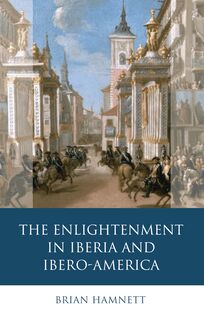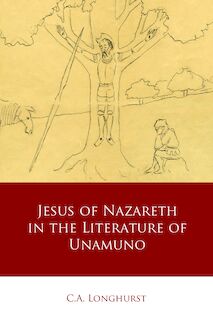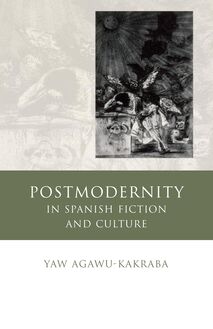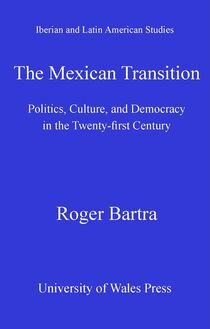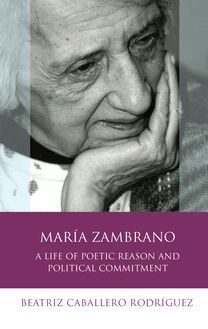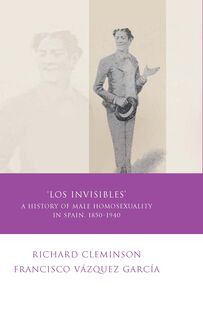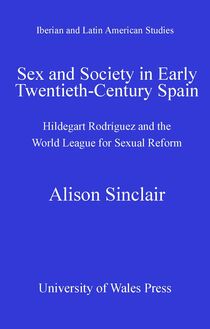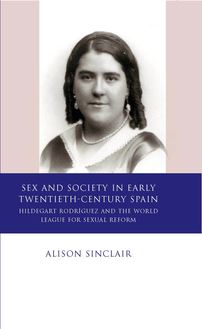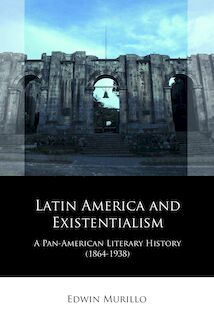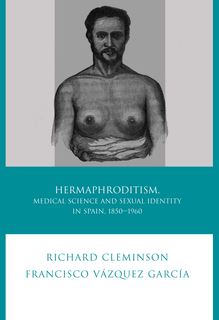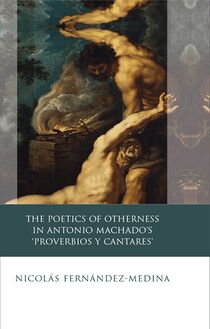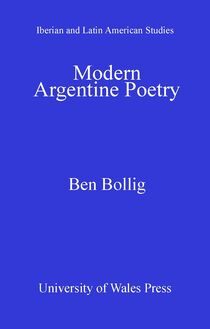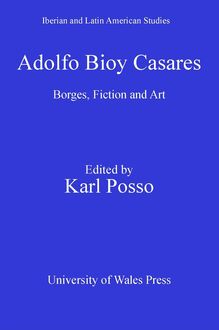-
 Univers
Univers
-
 Ebooks
Ebooks
-
 Livres audio
Livres audio
-
 Presse
Presse
-
 Podcasts
Podcasts
-
 BD
BD
-
 Documents
Documents
-
- Cours
- Révisions
- Ressources pédagogiques
- Sciences de l’éducation
- Manuels scolaires
- Langues
- Travaux de classe
- Annales de BEP
- Etudes supérieures
- Maternelle et primaire
- Fiches de lecture
- Orientation scolaire
- Méthodologie
- Corrigés de devoir
- Annales d’examens et concours
- Annales du bac
- Annales du brevet
- Rapports de stage
La lecture à portée de main
226 pages
English
Découvre YouScribe en t'inscrivant gratuitement
Je m'inscrisThe Poetics of Otherness in Antonio Machado's 'proverbios Y Cantares' , livre ebook
Découvre YouScribe en t'inscrivant gratuitement
Je m'inscris
Obtenez un accès à la bibliothèque pour le consulter en ligne
En savoir plus
En savoir plus
226 pages
English
Obtenez un accès à la bibliothèque pour le consulter en ligne
En savoir plus
En savoir plus

Description
Antonio Machado (1875-1939) is one of Spain’s most original and renowned twentieth-century poets and thinkers. From his early poems in Soledades. Galerías. Otros poemas of 1907, to the writings of his alter-ego Juan de Mairena of the 1930s, Machado endeavoured to explain how the Other became a concern for the self. In The Poetics of Otherness in Antonio Machado’s “Proverbios y cantares,” Nicolás Fernández-Medina examines how Machado’s “Proverbios y cantares,” a collection of short, proverbial poems spanning from 1909 to 1937, reveal some of the poet’s deepest concerns regarding the self-Other relationship. To appreciate Machado’s organizing concept of otherness in the “Proverbios y cantares,” Fernández-Medina argues how it must be contextualized in relation to the underlying Romantic concerns that Machado struggled with throughout most of his oeuvre, such as autonomy, solipsism and skepticism of absolutes. In The Poetics of Otherness in Antonio Machado’s “Proverbios y cantares,” Fernández-Medina demonstrates how Machado continues a practice of “fragment thinking” to meld the poetic and the philosophical, the part and whole, and the finite and infinite to bring light to the complexities of the self-Other relationship and its relevance in discussions of social and ethical improvement in early twentieth-century Spain.
INTRODUCTION Beyond the Lyrical and the Proverbial: Antonio Machado's Poetic Thinking I. THE PROBLEM OF SUBJECTIVITY: HOW TO KNOW THE SELF AND OTHER Kantian Metaphysics and the Need for Realness The Rise of Individualism Reading the Fragment, Reading the Whole: Poetry's Becoming The 'proverbio' and 'cantar': A Brief Genealogy II. TOWARDS CONCEIVING THE OTHER: THE FORMATIVE YEARS The Machado Family The Institucion Libre de Ensenanza and the Krausist 'hombre' The Madrid Years: Folk Poetry in the Age of Romantic Exhaustion The Influence of Eduardo Benot Early Poetic Symbolism: The Soledades III. FROM ART TO LIFE: CRITICAL INQUIRIES AND A NEW POETRY The Machado-Unamuno Correspondence 1903-1905 The modernismo Question Cain, Abel and the Thirsting Brother Poetic Inspiration: The Honey Bee IV. THE GOD OF INTERSUBJECTIVITY Spain's Spiritual Crisis and Unamuno's Lessons on God The Janus-faced God: Presence and Absence The Divine Light Within: Machado's Critique of Organized Religion Jesus as Symbol V. THE DOUBLE BIND OF KNOWLEDGE AND IGNORANCE Ignorance and Spain's 'problema de cultura' The Problem of Empty-Headedness Cucana Logic The Collective Meaning of 'saber' The Infinity of Knowledge and Ignorance CONCLUSION The Infinite Inquiry Machado's Trajectory Toward Otherness From Machado to Levinas
INTRODUCTION Beyond the Lyrical and the Proverbial: Antonio Machado's Poetic Thinking I. THE PROBLEM OF SUBJECTIVITY: HOW TO KNOW THE SELF AND OTHER Kantian Metaphysics and the Need for Realness The Rise of Individualism Reading the Fragment, Reading the Whole: Poetry's Becoming The 'proverbio' and 'cantar': A Brief Genealogy II. TOWARDS CONCEIVING THE OTHER: THE FORMATIVE YEARS The Machado Family The Institucion Libre de Ensenanza and the Krausist 'hombre' The Madrid Years: Folk Poetry in the Age of Romantic Exhaustion The Influence of Eduardo Benot Early Poetic Symbolism: The Soledades III. FROM ART TO LIFE: CRITICAL INQUIRIES AND A NEW POETRY The Machado-Unamuno Correspondence 1903-1905 The modernismo Question Cain, Abel and the Thirsting Brother Poetic Inspiration: The Honey Bee IV. THE GOD OF INTERSUBJECTIVITY Spain's Spiritual Crisis and Unamuno's Lessons on God The Janus-faced God: Presence and Absence The Divine Light Within: Machado's Critique of Organized Religion Jesus as Symbol V. THE DOUBLE BIND OF KNOWLEDGE AND IGNORANCE Ignorance and Spain's 'problema de cultura' The Problem of Empty-Headedness Cucana Logic The Collective Meaning of 'saber' The Infinity of Knowledge and Ignorance CONCLUSION The Infinite Inquiry Machado's Trajectory Toward Otherness From Machado to Levinas
Sujets
Informations
| Publié par | University of Wales Press |
| Date de parution | 15 janvier 2011 |
| Nombre de lectures | 0 |
| EAN13 | 9780708323236 |
| Langue | English |
Informations légales : prix de location à la page 0,1900€. Cette information est donnée uniquement à titre indicatif conformément à la législation en vigueur.
Extrait
Iberian and Latin American Studies
The Poetics of Otherness in Antonio Machado’s ‘Proverbios y Cantares’
Nicolás Fernández-Medina
University of Wales Press
Iberian and Latin American Studies
The Poetics of Otherness in Antonio Machado’s ‘Proverbios y cantares’
Series Editors Professor David George (Swansea University) Professor Paul Garner (University of Leeds)
Editorial Board David Frier (University of Leeds) Laura Shaw (University of Liverpool) Gareth Walters (Swansea University) Rob Stone (Swansea University) David Gies (University of Virginia) Catherine Davies (University of Nottingham) Richard Cleminson (University of Leeds)
IBERIAN AND LATIN AMERICAN STUDIES
The Poetics of Otherness in Antonio Machado’s ‘Proverbios y cantares’
Nicolás Fernández-Medina
© Nicolás Fernández-Medina, 2011
All rights reserved. No part of this book may be reproduced in any material form (including photocopying or storing it in any medium by electronic means and whether or not transiently or incidentally to some other use of this publication) without the written permission of the copyright owner except in accordance with the provisions of the Copyright, Designs and Patents Act 1988. Applications for the copyright owner’s written permission to reproduce any part of this publication should be addressed to The University of Wales Press, 10 Columbus Walk, Brigantine Place, Cardiff, CF10 4UP. www.uwp.co.uk British Library CIP A catalogue record for this book is available from the British Library.
ISBN 978–0–7083–2322–9 e-ISBN 978–0–7083–2323–6 The right of Nicolás Fernández-Medina to be identified as author of this work has been asserted in accordance with sections 77, 78 and 79 of the Copyright, Designs and Patents Act 1988.
Typeset by Columns Design Limited, Reading Printed by CPI Antony Rowe, Chippenham, Wiltshire
Contents
Series Editors’ Foreword Acknowledgements
Introduction Beyond the Lyrical and the Proverbial: Antonio Machado’s Poetic Thinking Chapter 1: The Problem of Subjectivity: How to Know the Self and Other Chapter 2: Towards Conceiving the Other: The Formative Years Chapter 3: From Art to Life: Critical Inquiries and a New Poetry Chapter 4: The God of Intersubjectivity Chapter 5: The Double Bind of Knowledge and Ignorance Conclusion Works Cited Notes Index
vii ix 1
17
51
85 109 139 165 175 185 205
Series
Editors’
Foreword
Over recent decades the traditional ‘languages and literatures’ model in Spanish departments in universities in the United Kingdom has been superceded by a contextual, interdisciplinary and ‘area studies’ approach to the study of the culture, history, society and politics of the Hispanic and Lusophone worlds – categories that extend far beyond the confines of the Iberian Peninsula, not only in Latin America but also to Spanish-speaking and Lusophone Africa. In response to these dynamic trends in research priorities and curriculum development, this series is designed to present both disci-plinary and interdisciplinary research within the general field of Iberian and Latin American Studies, particularly studies that explore all aspects of cultural production (inter alia literature, film, music, dance, sport) in Spanish, Portuguese, Basque, Catalan, Galician and indigenous languages of Latin America. The series also aims to publish research in the History and Politics of the Hispanic and Lusophone worlds, at the level of both the region and the nation-state, as well as on Cultural Studies that explore the shifting terrains of gender, sexual, racial and postcolonial identities in those same regions.
-
 Univers
Univers
-
 Ebooks
Ebooks
-
 Livres audio
Livres audio
-
 Presse
Presse
-
 Podcasts
Podcasts
-
 BD
BD
-
 Documents
Documents
-
Jeunesse
-
Littérature
-
Ressources professionnelles
-
Santé et bien-être
-
Savoirs
-
Education
-
Loisirs et hobbies
-
Art, musique et cinéma
-
Actualité et débat de société
-
Jeunesse
-
Littérature
-
Ressources professionnelles
-
Santé et bien-être
-
Savoirs
-
Education
-
Loisirs et hobbies
-
Art, musique et cinéma
-
Actualité et débat de société
-
Actualités
-
Lifestyle
-
Presse jeunesse
-
Presse professionnelle
-
Pratique
-
Presse sportive
-
Presse internationale
-
Culture & Médias
-
Action et Aventures
-
Science-fiction et Fantasy
-
Société
-
Jeunesse
-
Littérature
-
Ressources professionnelles
-
Santé et bien-être
-
Savoirs
-
Education
-
Loisirs et hobbies
-
Art, musique et cinéma
-
Actualité et débat de société
- Cours
- Révisions
- Ressources pédagogiques
- Sciences de l’éducation
- Manuels scolaires
- Langues
- Travaux de classe
- Annales de BEP
- Etudes supérieures
- Maternelle et primaire
- Fiches de lecture
- Orientation scolaire
- Méthodologie
- Corrigés de devoir
- Annales d’examens et concours
- Annales du bac
- Annales du brevet
- Rapports de stage
Signaler un problème
YouScribe
Le catalogue
Le service
© 2010-2024 YouScribe
